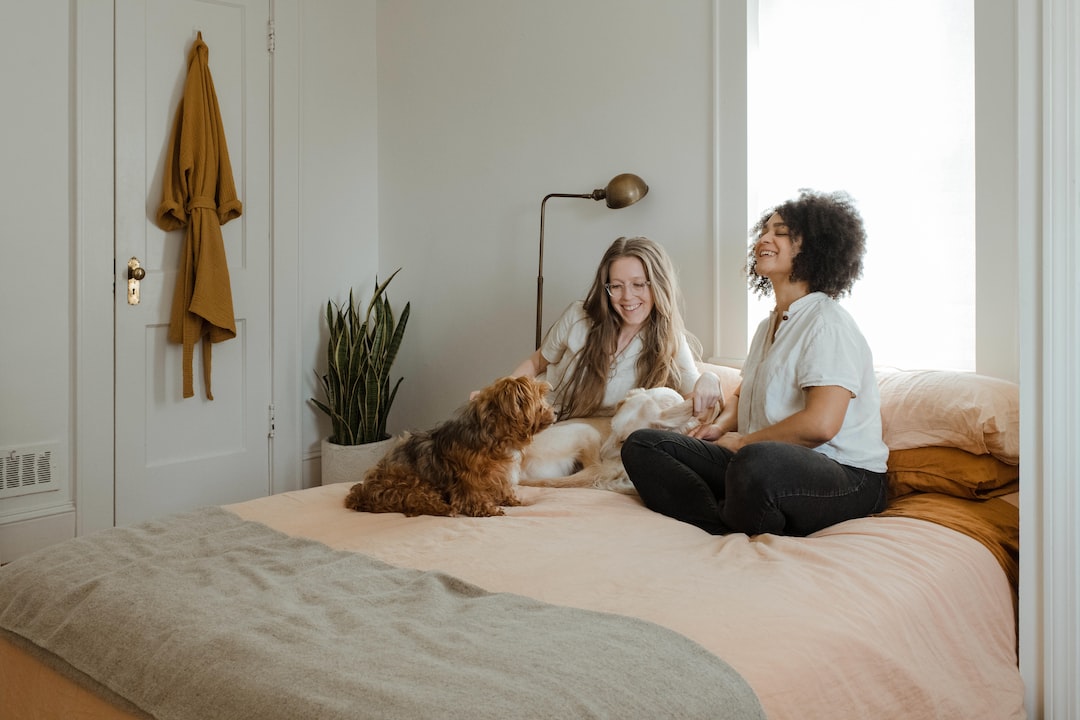Essential Tips for House Training Your New Puppy
Bringing a new puppy into your home is an exciting and joyful experience. As you embark on this journey with your furry friend, one of the first challenges you’ll face is house training. Properly house training your new puppy is essential for a happy coexistence and a well-behaved pet. In this blog post, we will share some essential tips to help you achieve success in this important aspect of puppy parenting.
1. Set a Consistent Routine
Establishing a consistent routine is crucial in the early stages of house training. Puppies thrive on structure and predictability, so make sure to feed them at the same time every day, take them out for bathroom breaks on a regular schedule, and establish consistent play and rest times. This routine will help your puppy understand what is expected of them and when.
2. Use a Crate or Confined Space
Utilize a crate or confined space to aid in house training. Dogs instinctively avoid soiling their sleeping and eating areas, so a crate can be a helpful tool for teaching your puppy to hold their bladder. Make sure the crate is comfortable and spacious enough for them to turn around and lie down comfortably. Remember, the crate should never be used as a form of punishment.
3. Always Supervise
Whenever your puppy is not in their crate, make sure to supervise them closely. Keep an eye out for signs that they need to go to the bathroom, such as sniffing or circling. If you notice these signs, quickly take them outside to their designated bathroom area. By closely monitoring your puppy, you can prevent accidents from occurring and reinforce good potty habits.
4. Choose a Designated Bathroom Area
Designate a specific area in your yard as your puppy’s bathroom spot. Consistently taking them to that spot will teach them that this is where they are supposed to eliminate. Over time, the familiar scent will serve as a signal to them that it’s time to go. Remember to use positive reinforcement, such as treats or praise, when they successfully go in the designated area.
5. Reward and Reinforce Good Behavior
Positive reinforcement is key to house training success. Whenever your puppy eliminates outside or shows signs of needing to go, reward them with praise, treats, or a favorite toy. This positive association will motivate them to repeat the desired behavior. Avoid scolding or punishing your puppy for accidents, as this can create fear and setback the training process.
6. Be Patient and Consistent
House training takes time and patience. Puppies have small bladders and limited control over their bodily functions, so accidents are to be expected. Stay calm and consistent in your training efforts. Consistency is especially vital when multiple people are involved in house training. Make sure everyone in the household follows the same routine and enforces the same rules to avoid confusion for your puppy.
7. Clean Accidents Promptly and Thoroughly
Despite your best efforts, accidents may still happen during the house training process. It’s important to clean any accidents promptly and thoroughly to remove any lingering scent that may encourage repeat offenses. Use an enzymatic cleaner specifically designed for pet stains to fully eliminate odors and prevent your puppy from revisiting the same spot.
8. Gradually Increase Freedom
As your puppy becomes more reliable with their potty training, you can gradually increase their freedom in the house. Begin by expanding their supervised area, then gradually allow them access to more rooms as they consistently demonstrate good behavior. This step-by-step process will help your puppy develop good habits while preventing overwhelming them with too much freedom too soon.
9. Establish a Bedtime Routine
Establishing a bedtime routine is essential for successful house training. Make sure to take your puppy outside for one last bathroom break before bedtime. This will help them empty their bladder and reduce the likelihood of overnight accidents. Ensure you provide a comfortable and secure sleeping area, such as a crate or a designated puppy bed, as this will contribute to a sense of safety and security.
10. Seek Professional Help if Needed
If you find yourself struggling with house training despite following these tips, don’t hesitate to seek help from a professional dog trainer or behaviorist. They can provide valuable guidance tailored to your specific situation and help address any underlying issues that may be hindering the progress of your puppy’s training.
In conclusion, house training your new puppy requires patience, consistency, and positive reinforcement. By establishing a routine, using a crate, closely supervising, and rewarding good behavior, you can help your puppy learn where and when to go to the bathroom. Remember, accidents are a natural part of the learning process, so stay calm, be patient, and above all, enjoy the journey of bonding and training your new furry companion.
